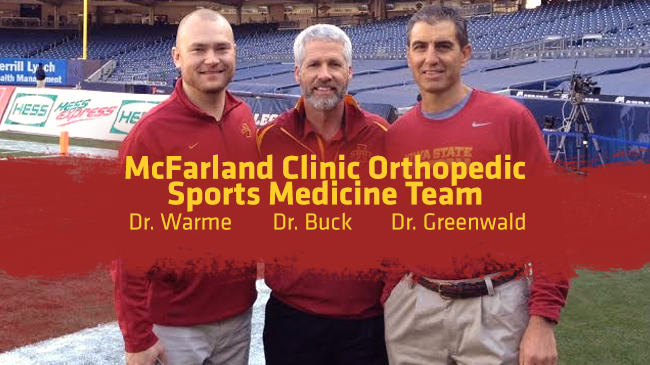As basketball season gets started, I wanted to briefly discuss one of the most common basketball injuries that often needs surgery – that being the ACL. The ACL, as most sports enthusiasts probably already understand, is a ligament inside the knee that helps stabilize the knee joint, especially during cutting and pivoting motions.
When the ACL in disrupted, the tibia (shin bone) can slide forward or rotate relative to the femur (thigh bone). Unfortunately, the ACL has a very poor blood supply which compromises the body’s healing potential of a torn ACL. Furthermore, because of the poor blood supply and poor healing potential, repairing the native ACL, predictably, does not work well.
This is why ACL Reconstruction is the most common surgery for ACL injuries. “Reconstruction” means we, as orthopedic surgeons, are replacing the injured ACL ligament with an entirely new graft so we don’t need to rely as heavily on the blood supply for healing.
Three commonly used grafts in ACL Reconstruction are:
● Bone-Patella Tendon-Bone (“BTB”) graft
● Hamstring graft
● Cadaver graft (where donated tissue is transplanted into the knee)
The BTB and Hamstring grafts are two of the most common types of grafts used in competitive athletes. The graft is harvested from the athlete’s knee and then used to replace, or “Reconstruct”, the torn ACL.
The cadaver donor graft can be a consideration if the patient does not want to use his/her own tissue for the graft and that decreases the pain and morbidity associated with the graft harvest.
There are pros and cons to each graft type and I tailor graft selection to each patient. In general, I like to use the BTB for high level cutting athletes. This is probably the most common graft choice in professional sports in the United States including the NFL.
There are certain situations, however, where I prefer the hamstring graft. In wrestlers, who compete on their knees, BTB can irritate the harvest site. In less active patients, there is now an “all-arthroscopic” technique that I use with donor grafts, which my patients have been very happy.
So….which is the best graft?
This is a much-debated topic in Sports Medicine and ultimately, all commonly used graft types have generally good outcomes. In my practice, I tailor each ACL surgery individually by helping my patient pick the graft that suits them best in terms of all the risks and benefits of each graft type and surgical technique. This is a HUGE topic that books and books have been written on and this is just a primer that I hope helps you understand the ACL injury and surgery a little bit better.
That’s all for now, Dr Warme.
Are you interested in making an appointment with our docs? Click here to learn more about Dr. Warme, Dr. Buck and Dr. Greenwald.




